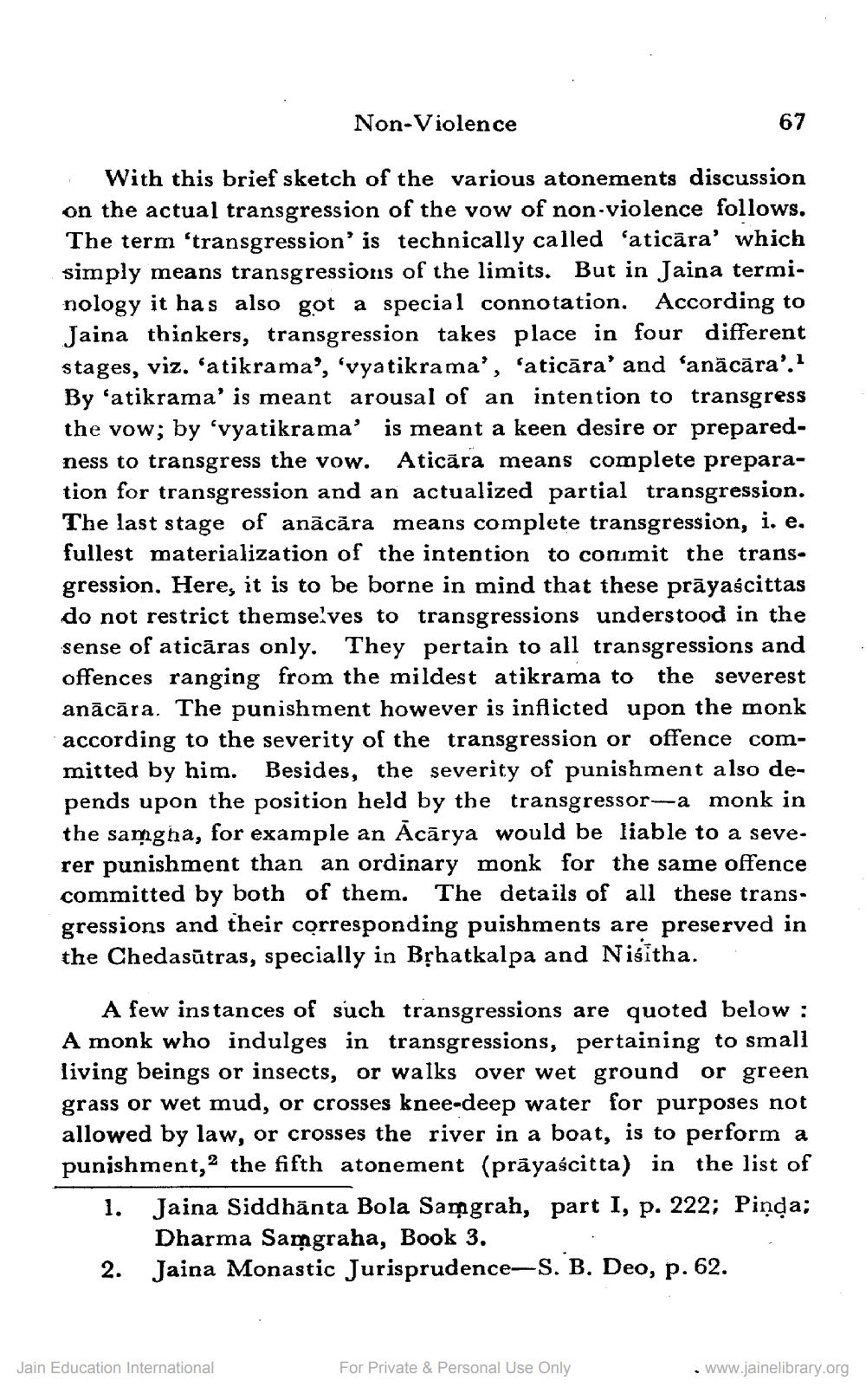________________
Non-Violence
62
With this brief sketch of the various atonements discussion on the actual transgression of the vow of non-violence follows. The term 'transgression' is technically called 'aticāra' which simply means transgressions of the limits. But in Jaina terminology it has also got a special connotation. According to Jaina thinkers, transgression takes place in four different stages, viz. ‘atikrama', 'vyatikrama', 'aticāra' and 'anācāra'.' By ‘atikrama' is meant arousal of an intention to transgress the vow; by ‘vyatikrama' is meant a keen desire or preparedness to transgress the vow. Aticāra means complete preparation for transgression and an actualized partial transgression. The last stage of anācāra means complete transgression, i. e. fullest materialization of the intention to conimit the transgression. Here, it is to be borne in mind that these prāyascittas
estrict themselves to transgressions understood in the sense of aticāras only. They pertain to all transgressions and offences ranging from the mildest atikrama to the severest anācāra. The punishment however is inflicted upon the monk according to the severity of the transgression or offence committed by him. Besides, the severity of punishment also depends upon the position held by the transgressor-a monk in the samgha, for example an Ācārya would be liable to a seve. rer punishment than an ordinary monk for the same offence committed by both of them. The details of all these transgressions and their corresponding puishments are preserved in the Chedasūtras, specially in Bịhatkalpa and Niśitha.
A few instances of such transgressions are quoted below : A monk who indulges in transgressions, pertaining to small living beings or insects, or walks over wet ground or green grass or wet mud, or crosses knee-deep water for purposes not allowed by law, or crosses the river in a boat, is to perform a punishment, the fifth atonement (prāyaścitta) in the list of 1. Jaina Siddhānta Bola Samgrah, part I, p. 222; Pinda;
Dharma Samgraha, Book 3. 2. Jaina Monastic Jurisprudence-S. B. Deo, p. 62.
Jain Education International
For Private & Personal Use Only
. www.jainelibrary.org




